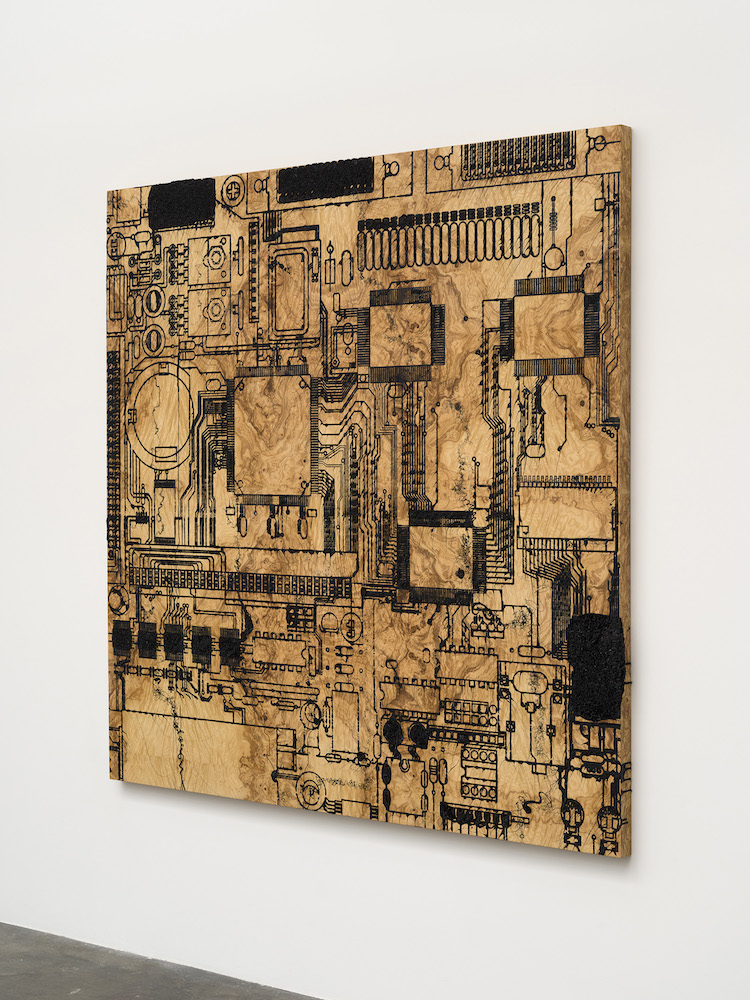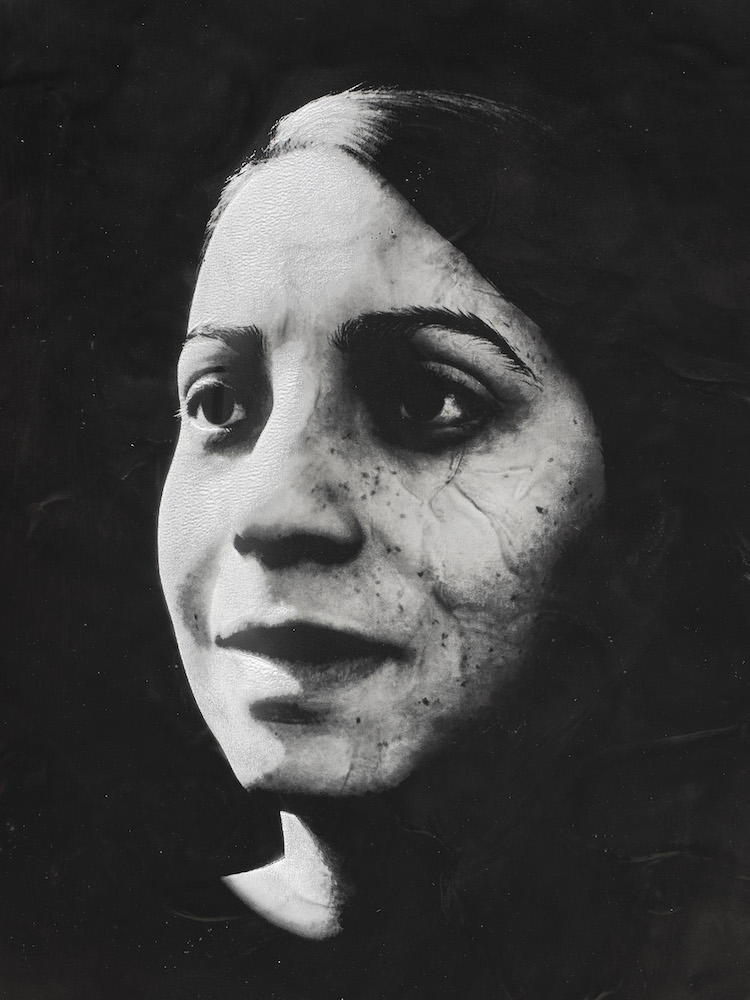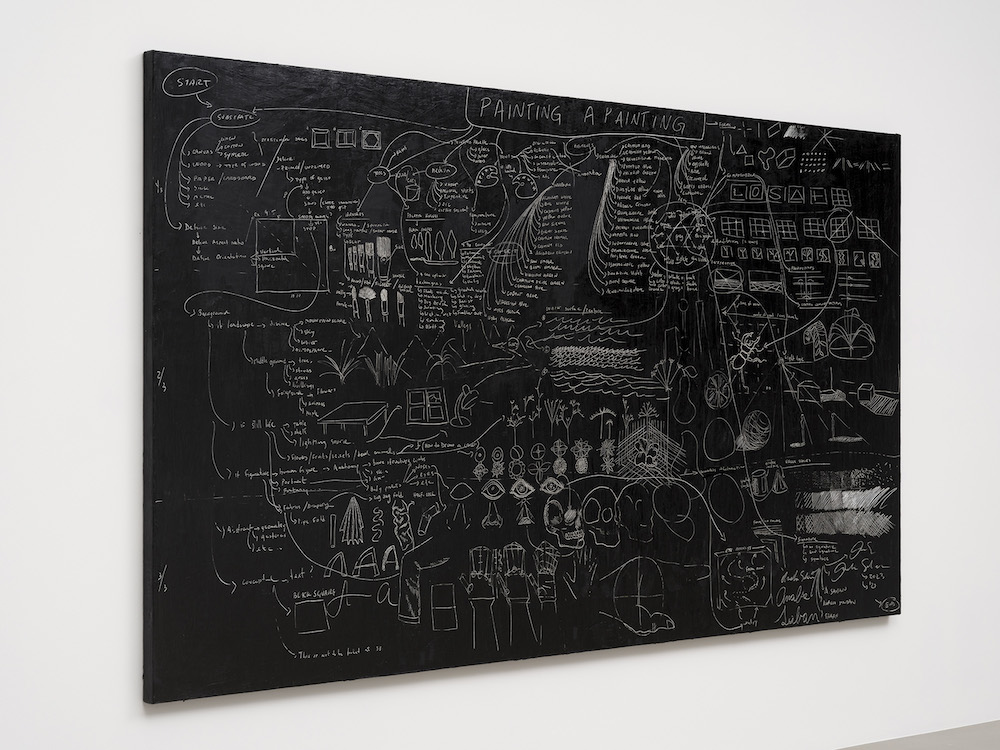As with most endings, there exists introspection. The show is done, the crates have been shipped, the pieces have been sold—or not. Regardless of the success or accolades, regardless of the critic’s opinions, reality is now filled with days of waking up sans deadline. The infinite to-do list has expired, the phone no longer rings. In this deafening quiet after action, we as humans naturally pause and contemplate—if even just for a blink. This is the fleeting moment in life that I am intrinsically drawn to, the moment in which hubris wanes with fatigue. This undervalued and underexplored/exploited moment has always intrigued me—the comedown, the aftermath, the dust-has-settled moment.
This moment is where I find myself catching up with Analia Saban. The fever-pitched apex of excitement for “Synthetic Self”—at her conjoined Los Angeles exhibitions at Tanya Bonakdar Gallery and Sprüth Magers—has ended, purposefully forcing our conversation into past tense. While her new work is a momentous acknowledgment of how global dealers must now collaborate, my interests lie not in art-world hugs. The conversation of significance explores Saban’s laser critique, artistically focused on cooling this blip in the digital timeline.

Analia Saban, Circuit Board with Deliberate Lines #4, 2023.
In a hipster coffee shop in K-town, we were able to talk art, tech, computer fans (some made of marble in her new work), blockchains, crypto, FTX, AI and its beautifully sinister overlordly implications. Saban was able to reflect on some of the pre-exhibition thesis: “With this show I really wanted to grasp this moment [humanity’s digital timeline] as it is so important. We are not giving it enough thought. I feel like the ride can be taken away overnight. Through art and primitive materials—beeswax, canvas, wood, marble—I wanted to address these totally abstract and high-tech issues we are facing for the planet.”
I may come off in a multitude of ways depending on mood or situation—a lover of technology but also a fatalist regarding our trajectory as a connected and pulsating human organism being prompted forward by the next decimal place on ChatGPT. With almost ominous undertones I have re-listened to the recorded version of our coffee-shop conversation. Christmas music blares in the background as we have an academic conversation on the implications of AI and the role/duty of the artist during this time. Saban astutely speaks about self-driving cars, Open AI and Sam Altman, while I pepper in cynical jokes about Arnold and Skynet taking over as “Jingle Bells” continues to march forward. What a curious time we are existing in—whoever programmed this simulation truly does have a twisted fucking sense of humor.

Analia Saban, Deep Fake (detail), 2023; all courtesy the artist, Tanya Bonakdar Gallery and Sprüth Magers.
Throughout history, the classic canon acknowledges the artist as an unwavering explorer and proponent for technological advancement, while in the same breath its most vocal critic. The graceful interplay between creator and technological tool is in many cases where honest critique happens. This is where the acute vision of someone like Saban carries so much value. She has built an impressive career off conceptual destruction—questioning and reconstructing objects into something invariably altered, while also uncannily familiar. In much of this current status-quo life AI is trying to perfectly measure up to what it is to be human. Saban is purposely making works subtly riddled with minute errors or miscalculations, her own gentle way of commenting on the current state of artificial intelligence—or rather the previous outdated iteration. Through unsleeping unblinking reverberations, the errors are hunted down and eliminated from the matrix.
As we scroll Instagram, gone are the sensual days with imagery containing six-fingered hands and emotive expressions completely unfitting to the visual dialog. In less than three years since OpenAI introduced DALL-E, AI prompt-generated images are nearly indistinguishable from reality. Art emulating digital life emulating the human existence—distilled down to its binary essence and regurgitated back via a seven-word prompt phrase. Let the holiday music rock on while Mr. Smith tirelessly hunts for us in the coffee shop.


